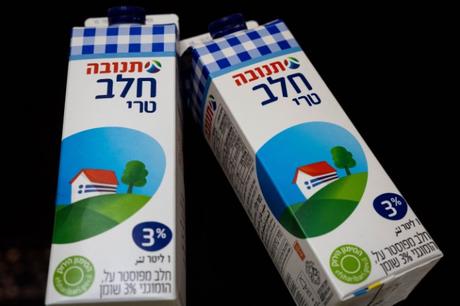To combat the shortage, Finance Minister Betzalel Smotritch has decided to lift the tariffs on imported milk. They currently stand at 40%, essentially meaning importing milk is blocked, as no company will import milk at such a high cost, as it is not economically viable. Removing the tariffs entirely, for an initial period of three months, opens the market for milk imports. Milk in Europe is significantly cheaper than in Israel.

That being said, there are more challenges to importing milk than just the pricing.
Milk companies abroad will have to get kashrut certification. Sounds easy enough but it will be a challenge. The Chief Rabbinate of Israel does not allow the import of real milk (cholov nochri), only milk powder. And general producers of milk are generally not cholov yisrael, and the ones that are are usually more expensive, and also seem to have a shorter shelf life. So only cholov yisrael milk will be imported? Is there enough cholov yisrael milk in Europe available for import to make a dent in the Israeli market? Will the Rabbanut send mashgichim to dairy farms to supervise cholov yisrael milk the way they send to South America and other places for shechita? Will the imported milk prices still be relatively low after all those additional costs?
There are also practical issues such as the amount of time it takes to import milk, between the various regulations and bureaucracies and the amount of shipping and distribution time - when it hits the shelf will it already be spoiled or will it have, at best, an extremely short shelf life? The importers have requested regulation changes to make import faster to assist with this, but that has not yet been approved.
And possibly most importantly, if they turn this into a permanent arrangement, which would be great for the consumer, this will be heading to a massive political battle as local dairy farmers have been protected with their production. This will hurt local production and they have a strong lobby.
------------------------------------------------------
Reach thousands of readers with your ad by advertising on Life in Israel ------------------------------------------------------
